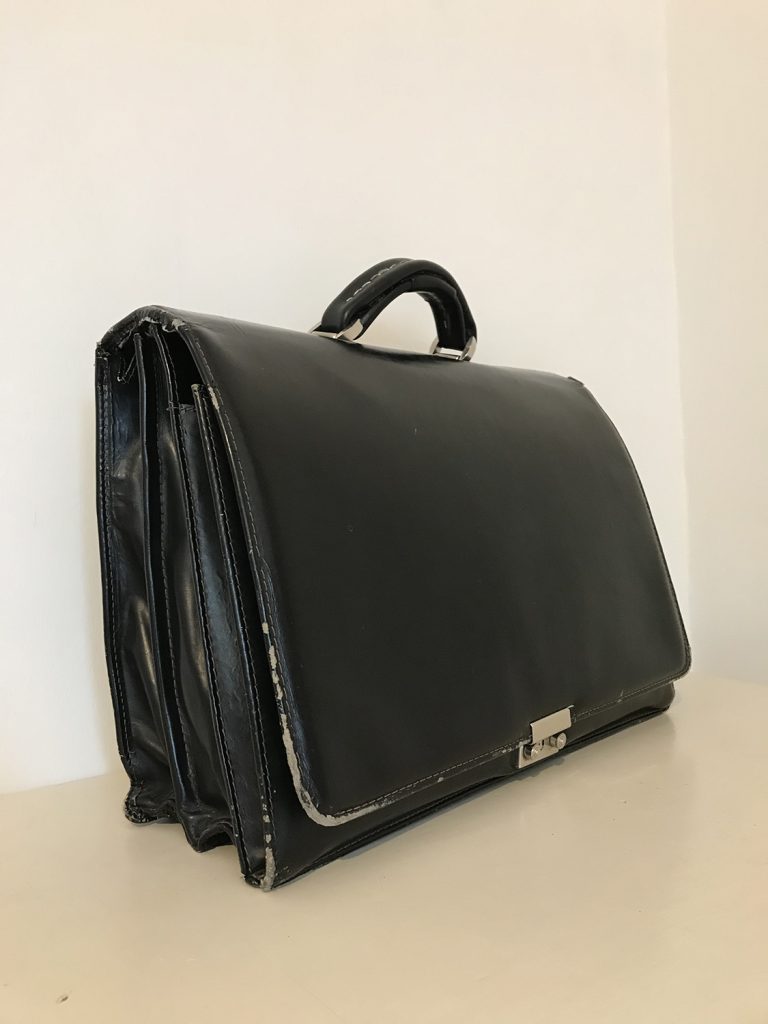
In my early days, I used to live a nomadic life. Apart from my family home, I didn’t have a home of my own until I was 45. I always kept my possessions to a minimum. The biggest problem were books, they still are. I kept them in many places where I stayed. Remarkably, I always remembered what was left with whom. I still remember some of them. It was a way of marking my presence, I guess.
My big trip, which changed my life, happened in 1992 when I left Montenegro for London. It was in the midst of the horrible Balkan conflict. I thought it will be temporary, a six months stay in London on a tourist visa. I sold all my records, books, my saxophone … everything to raise as much money as possible. As there were no civil flights over Yugoslavia I had to take the train to Belgrade and then bus to Budapest to fly to London. Thinking back: what a luxury, compared to all those refugees crossing over continents on foot in search of safety and a better life.
My father was ill at the time and I didn’t want to leave. But he was the one who persuaded me to go, although knowing that he would probably never see me again. A year later he died. On the very day I left, he asked me: “Would you like to take this briefcase with you”. It brought a big smile to my face as it was something I always associated with him. As a child, I would like to sit outside our home and wait for my father to come back from work. This was a very short walk just across the bridge over Moraca river in Montenegrin capital, then called Titograd. The way to identify him in the distance was this black leather briefcase.
It is the only object that I could think of that stayed with me as far as I can remember.
My father travelled frequently around Yugoslavia and each time he would bring presents. He would bring delicatessen, chocolates, books, many things not available in our small town and I was always surprised how much he could fit in his black briefcase. This is back in the late sixties when I started seriously listening to music, tuning to LW to listen to the faint sound of Radio Luxembourg, a signal that faded in and out and ’45 rpm’ records on my tiny Supraphone record player. Then ’33rpm’ LPs came and realising my passion my father started to bring me records. I never asked for particular ones, but somehow he always got it right: Jimmy Hendrix, Alman Brothers Band, Grand Funk Railroad, Black Sabbath, Led Zeppelin and our own Pop Masina, Time, Bulldozer. I was particularly fond of a silver-coated, double live LP album from the third annual ‘Boom’ rock festival, held in 1974 at Ljubljana Tivoli Arena, dreaming of going to one of these festivals one day. The briefcase was a perfect size to bring these records safely home.
When I came to London I still kept my ‘rock n roll image’ and the briefcase could not really fit with my lifestyle. I used it mostly to keep important documents together and the only times it went out was when I would dress up for job interviews putting on a ‘serious look’. It never worked, but I’m pleased I survived all these years outside institutions and formal jobs. Then, one day, the handle broke. It took me a while to mend it. I just wanted a simple repair job, but an enthusiastic ‘leather man’ made a completely new one which was far from the look of the original…not the same briefcase anymore but it did the job and the briefcase was back in use. I do wear suits these days and carry my father’s black briefcase wherever I go.
It is a sign of my past, and a sign of the changeability of my identity, something that will always stay with me.
Fedja Klikovac was born in 1959 Podgorica, Montenegro. From 1977- 1981 he studied History of Art at the Faculty of Philosophy Belgrade University.
He was a practising artist until his retirement as such in 1992 when he moved to London where he started dealing in second-hand clothes in various London markets, working on building sites, painting and decorating and providing technical support to several London art galleries etc.
From 2002 – 2005 he was running a pioneering ‘medievalmodern’ gallery in Marylebone, where artists were given the opportunity to work with chosen medieval artefacts from a private collection. Since 2006 he curated numerous exhibitions with Handel Street Projects in many temporary spaces around London. In 2014 the gallery moved to the permanent current space in Islington where Klikovac continues generating new possibilities and development of the critical thinking around contemporary art.